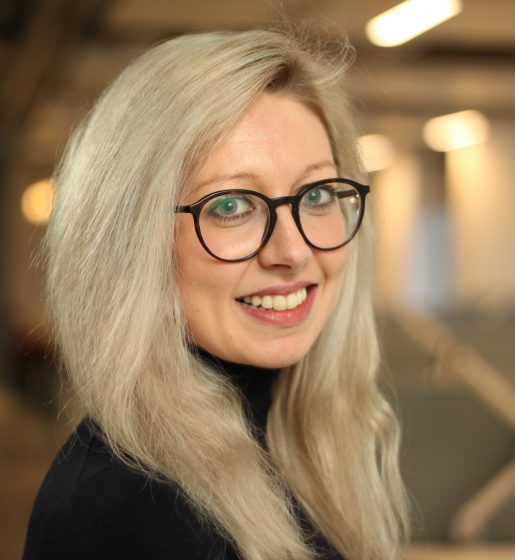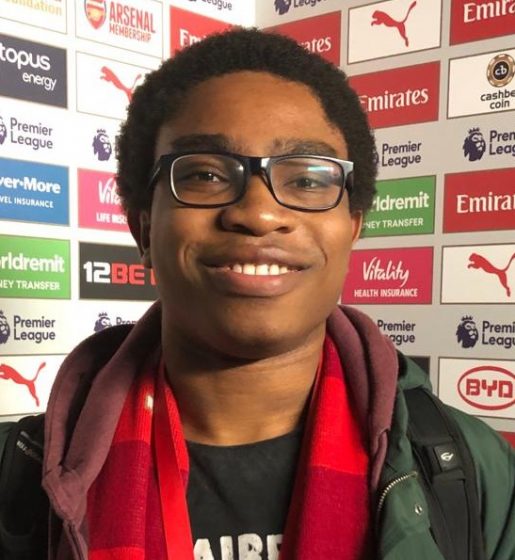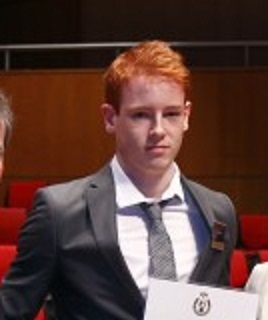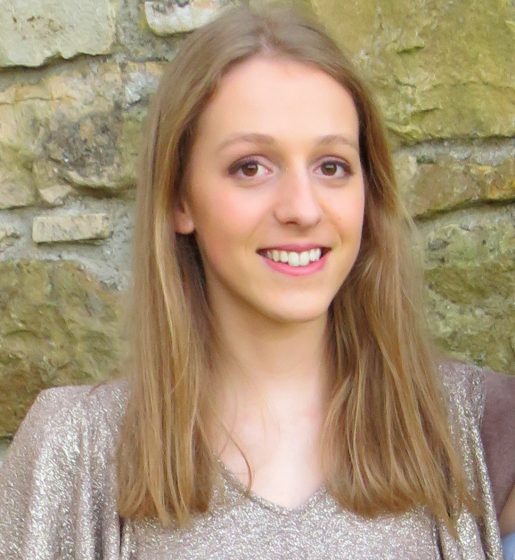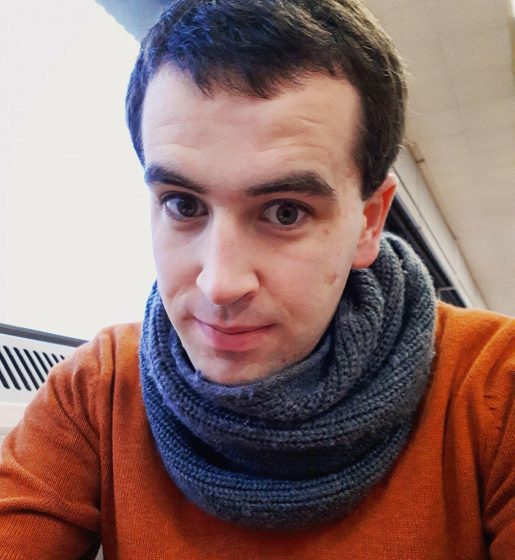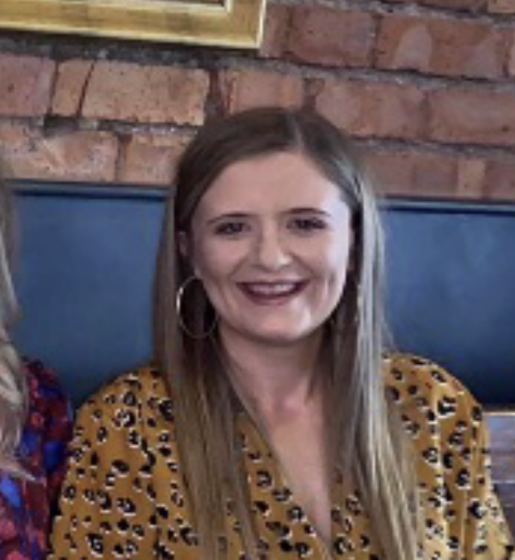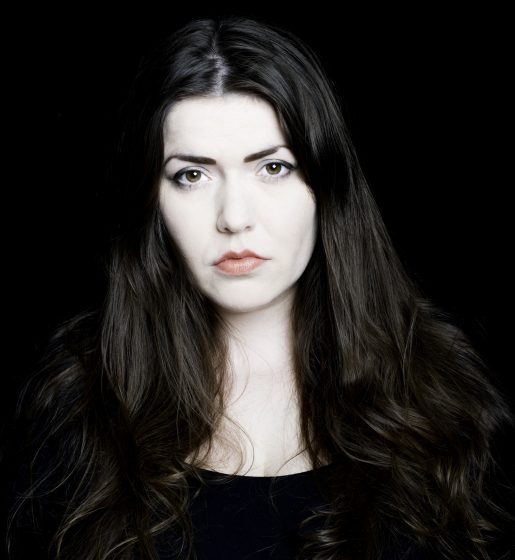The Last Roman
Today marks my last attempt to rescue Aodhán.
The sound of the November sea is one never-ending explosion. Our boat lurches to the left, then the Atlantic makes a fist and punched us upward. My stomach reaches my shoes on the way down.
Another wave surges over the side. Bright fingers of water slither across the deck, like the hungry arms of a squid. I grip the nearest handrail, and my knuckles turn fish-belly white. In any language but the sea, that would signal surrender.
Derek calls out from the helm. ‘Straight ahead, Adam.’
I slip wet hair out of my eyes. The storm, drunk with wind, acts sober for a second. The mist in front of us thins. The lighthouse appears.
Carrickderry Lighthouse towers like a stick of pearl above the waves. Located ten miles off the Cork coast, it earned a name as the last rock—a speck of Ireland so mad the rest of the country hurled it into the sea in some naïve attempt to tame it. Of course, when the sons of the famine built the lighthouse a century ago, none guessed it would take the title of the last rock literally until the end.
The other lighthouses modernised decades ago. Most were younger structures, and like youthful prize fighters, took to the lights and the cameras with all the usual fanfare. Carrickderry is more of a journeyman. The sea has knocked her down a dozen times, but she keeps getting back up again. Because she knows no other way. Carrickderry simply refuses to go.
‘Easy does it,’ I say, as we near the lukewarm safety of Carrickderry Cove.
Derek kills the engine. The boat gives a death bed shudder, thudding to a stop in the sand.
I secure the bow to the rock. Over the course of twenty years, the act has become sacred. But as with all religions, rituals at Carrickderry are conducted primarily out of fear.
Derek foists the supplies onto the shore. Food, clothes, and fresh water. If either of us had a rifle, Aodhán would accuse us of invasion.
‘Do you want me to come up?’ Derek asks.
A genuine offer, but I wave it away. Derek is skittish on a good day, flapping around his cabin like it’s a cage. A meeting with Aodhán requires a level head. Given the keeper has spent most of his life alone, a familiar face helps too.
‘Stay here. I won’t be long.’
Derek breathes a sigh of relief. Decades working as a fisherman mean the sea fits him like well-worn gloves. It’s the land he mistrusts. Land makes men promises—doom disguised as deliverance. And no land has doomed as many men as Carrickderry.
I reach the top of the cliffs in a huff. A nameless trail leads to the lighthouse. Low walls either side keep the frustrated wind at bay.
I pick my way along the path. Soon, I’ve shaken off the shock of the sea. Unlike Derek, the water strips my nerves, like copper wire pulled from the walls of an old house. By comparison, Carrickderry is a refuge.
In the summer, the rock becomes a haven for real. Up here, beneath the naked Irish sun, a man forgets the invisible enemy below. But the sea has immortal patience, and summer never lasts. At Carrickderry, winter comes for every man in time.
I’ve been trying to reach Aodhán for a month. Twice last week the weather turned us back. It would have again this morning were this just another routine supply run. But this time I bring news. A great storm is forecast, meaning Aodhán is no longer safe at Carrickderry. I must convince him to come home.
My bargaining chip is my spare room. Niamh or Sam won’t mind. Niamh left six months ago, and Sam is off studying history at Trinity. At times, I wonder whether I’m lonelier than Aodhán. At least his isolation was a choice.
The door to the lighthouse stands ajar. Like a hermit returning to the monastery, I lower my hood and enter. At the kitchen table, Aodhán doesn’t so much as start.
‘You’ve gotten fat,’ he says.
I hug my stomach. ‘I took up running lately.’
Aodhán keeps his focus on his lunch. He grips his knife like a Neolithic hunter but wields it like a surgeon. The sandwich doesn’t stand a chance. ‘Run faster.’
I set down the supplies. I make a show of each item, like Aodhán is a druid, and the supplies a sacrifice. His eyes land on a small shopping bag.
‘Digestives weren’t on the list.’
I place the biscuits on the table and nudge them forward. There are no olive trees in Ireland, and so no branches. This is as close to a peace gesture as we get.
‘I won’t tell if you don’t.’
Aodhán’s frown deepens. He’s bald as topsoil and his leathery skin is tanned terracotta from the sun. The wrinkles of his face read like ogham script. But as he takes the biscuits, he betrays a rare smile.
‘I suppose you’ll stay for tea?’
I stare at the pot in the sink. There is no electric kettle on Carrickderry. Time isn’t as valuable here. At sea though, time is the most precious currency of all. I’d be a fool to delay.
‘No thanks.’ A practiced breath. ‘I must hurry back.’
I feel a twinge in my side. Guilt shouldn’t follow honesty, but with Aodhán it does. I search the room for something to say. My eyes find a map of Ireland on the wall. Aodhán has stuck every lighthouse with a pin. A red dot marks his spot on the frontier.
‘How’s work?’
Aodhán glances at the chart. He studies it like a seasoned commander, confident of where the next attack will land. Little does he know his sector is about to be overrun.
‘Hundred and forty ships last month.’
I can’t bring myself to call out the lie. Most of the shipping lanes changed a decade ago. In a graveyard of trade, Carrickderry is just another skeleton. A glorified retirement home. A candle holding vigil over nothing.
My gaze finds the blank space on the wall. I swallow.
‘You took down the photos?’
Aodhán answers with silence. But even noiseless, the lighthouse isn’t hollow. There are decades of thoughts stuffed up in here. On the mainland, Irish teenagers ping snippets of consciousness up online, and like willow-o-wisps they vanish. At Carrickderry, thoughts fester like sores. The worst ones were here before Aodhán arrived, and god knows they’ll linger long after his passing. For negative emotion, Carrickderry is a tomb.
‘I read that book you got me for Christmas,’ Aodhán says, in a voice that tells me that’s his penance. He places his hand on the hardback as if to swear an oath.
The spine reads “The Second Fall of Rome”. At the time, I figured Aodhán might enjoy the chapters on Byzantine ships and trade. Still, I remember the briny fingerprints I left on the cover, when the shop assistant asked me was the book a gift for someone special. Aodhán continues without so much as a glance my way.
‘Did you know the Byzantines used beacons to signal enemy attacks? Imagine that, one man in Anatolia, an empire in his hands.’
I’m tempted to remind him Anatolia did fall, and beacons did little to save it. Obligation tells me I should. Its cousin duty warns me I shouldn’t.
‘Seen any barbarians lately?’
I kick myself for the comment. The sea doesn’t wage war for conquest. It takes life as often as it gives it, but never out of malice or desperation. The tide comes in, and goes out, as fundamental a process as breathing. It’s a casual kind of violence. A kind Aodhán respects. My mind jerks to the task at hand.
‘Listen, I meant to ask, would you not spend time at home this year?’
‘Home?’ he asks, like it’s a conspiracy theory.
‘Cork.’
He sets his sandwich down. ‘Sure all my bags are here.’
‘Derek and I can sort that.’
‘And the food you brought?’
‘We’ll pack it all up again. Save you a trip to the shops.’
The suspicion sets in. Aodhán, like the last of a dying species, greets outsiders with fear. There is a darkness beyond the light of the fire where he dares not go.
‘I’d have nothing to do all day.’
I want to scream at the old man that he does nothing now. I want to club him over the head with his book until he understands the cost of pride. I choose diplomacy instead.
‘I could always use help on the farm.’
Aodhán scoffs. He’s spent his whole life wielding the spear. He isn’t going to trade in for the spade now.
‘Where would I stay?’
The moment to burn the bridge behind me arrives. But with all the kindling gathered, I hesitate to drop the torch. ‘You—you can spend Christmas with me.’
As expected, Aodhán erupts into flame. ‘Absolutely not. Out of the question. Couldn’t impose—’
‘There’s a storm coming!’
The ears of Carrickderry prick up.
‘A storm?’ Aodhán says, making accusations now.
‘A big one,’ I say, abandoning all pretence of composure. ‘The worst in decades. You can’t stay here. It’s too dangerous.’
Aodhán doesn’t pale. Danger is a dog he scratches behind the ear. He’s back on familiar ground. ‘You’re too young to remember the storm in ’82. The sea was as black as rum. By Christ we said our prayers then—’
My throat closes over. I know I’ve lost him, because he’s easing back in his chair, and his eyes are glazing over, and he has that fucking sandwich in his hand again, and—
‘Would you shut up!’
Aodhán rocks. I tremble too, because I’ve never raised my voice to him before, and the nervous exhilaration is like what I imagine it feels like when heroin takes hold. A pity l can’t savour it.
‘You’re not a lighthouse keeper. You’re not a soldier. You’re just a bitter old man who can’t let anything go.’
Aodhán rises. He looms up over the table, then over me, and soon I worry even Carrickderry can’t contain him. The grudges of his predecessors take one look at him and bolt.
‘Get out. Get out!’ He flings the digestives at my face. ‘Take your charity and never come back!
I grab the empty packs and go. Outside, the sky has turned dishwater grey. Derek is already untying the boat by the time I reach the cove.
‘Jesus, where were you? We have to go. Storm warning. Category four.’
The news hits like a freak wave. I cast a glance to the lighthouse. At that exact moment, the lantern flickers into action. The beacon is lit.
‘Change of plan.’ I chuck the packs into the boat. ‘I’m staying.’
‘What? Are you mad?’ Derek says. ‘Why?’
I shrug. ‘Aodhán offered me tea.’
Derek opens his mouth to protest. He knows nobody can reach Carrickderry in winter, meaning I’m stuck here until spring. As the boat slips away, he tries one last ploy.
‘I know he’s your father, but you don’t have to do this. What if something happens? What do I tell Sam?’
The great eye of Carrickderry sweeps the sea. The white beam lands miles away. It illuminates times I’d long since chosen to forget.
I remember them now. Childhood nights at the pier, scanning the horizon for sign of Carrickderry. Teenage years keeping the house warm in case Aodhán came home. That special dinner at the farm, when he did come round, and we all broke bread like a family in Asia Minor a thousand years ago. Niamh was laughing into my shoulder. Dad was playing with baby Sam in his cot. Later, he fell asleep on the couch, wrapped in purple, a future emperor cooing in his arms.
I smile. ‘Tell Sam Rome belongs to him now.’

